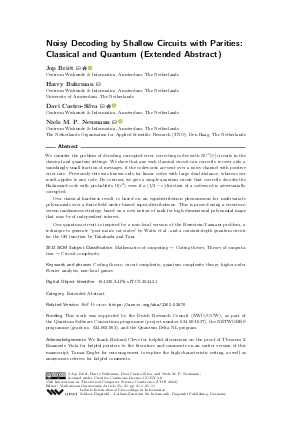LIPIcs.ITCS.2024.21.pdf
- Filesize: 0.7 MB
- 11 pages

 Creative Commons Attribution 4.0 International license
Creative Commons Attribution 4.0 International license





Feedback for Dagstuhl Publishing